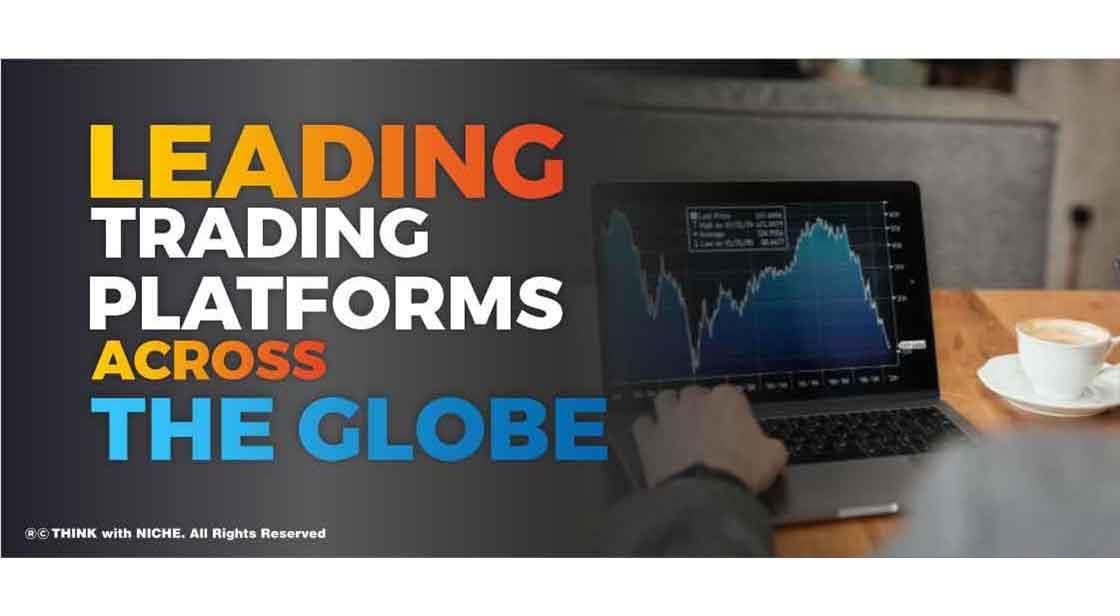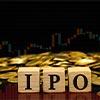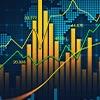Leading Trading Platforms across the Globe

Blog Post
Traders had to phone their brokerage firms and issue them 'buy' and sell orders before they could trade online. A large number of merchants have switched to online trading platforms since the emergence of the net in this information age.
As a seller or buyer, you can save your trading fees by using internet trading. What else do you receive when you trade online? Your investments will be more under your control. So, let's begin with the most fundamental step: selecting the appropriate trading platform.
Discover the world's most influential trading platforms that are shaping the global financial landscape. From traditional stock exchanges to cutting-edge digital platforms, these industry leaders are revolutionizing the way we trade and invest.
Explore the evolution of trading technology, key features, and advancements in the field. Gain insights into global stock exchanges, forex trading platforms, and cryptocurrency exchanges, and understand how they cater to the diverse needs of traders worldwide.
Whether you're a beginner or an experienced trader, this comprehensive guide provides valuable information on the leading trading platforms across the globe.
In today's interconnected world, trading platforms have become the cornerstone of financial markets, enabling individuals and institutions to buy, sell, and trade various assets.
These platforms provide access to a wide range of financial instruments, including stocks, bonds, commodities, currencies, and cryptocurrencies.
With the rapid advancement of technology, trading platforms have evolved to offer seamless user experiences, advanced trading tools, and real-time market data.
This article explores the leading trading platforms across the globe, highlighting their features, innovations, and the impact they have had on the global financial landscape.
1. Evolution of Trading Platforms
1.1 From Traditional Trading Floors to Electronic Trading
In the past, trading took place on physical trading floors, where traders would gather to buy and sell financial instruments. These trading floors, such as the New York Stock Exchange (NYSE) or the London Stock Exchange (LSE), were bustling hubs of activity, with traders shouting orders and making deals.
However, with the advancement of technology, the financial industry underwent a significant transformation. Electronic trading emerged as a game-changer, replacing the traditional trading floors with computerized systems.
This shift brought several advantages, including faster order execution, increased transparency, and reduced costs. Electronic trading platforms enabled traders to submit orders electronically, matching buyers and sellers efficiently.
The introduction of electronic communication networks (ECNs) further revolutionized trading by providing direct access to market participants.
ECNs eliminated the need for intermediaries, allowing traders to interact with each other directly. This development led to increased competition, improved price discovery, and enhanced liquidity in the markets.
1.2 Rise of Online Trading Platforms
As the internet became widely accessible, a new era of trading platforms emerged – online trading platforms. Online brokers began offering trading services to retail investors, enabling them to participate in financial markets from the comfort of their homes or offices.
Online trading platforms provided individuals with access to a variety of financial instruments, including stocks, bonds, options, and futures. These platforms offered user-friendly interfaces, real-time market data, research tools, and order execution capabilities. Retail investors could now manage their investment portfolios, place trades, and monitor market movements with ease.
The rise of online trading platforms also brought greater transparency and reduced trading costs for individual investors. Retail traders could access real-time quotes, historical price data, and market news, allowing them to make informed trading decisions. Furthermore, online brokers offered competitive commission rates, making trading more affordable and accessible to a broader audience.
1.3 Integration of Mobile Trading
With the proliferation of smartphones and mobile devices, trading platforms expanded their reach by integrating mobile trading capabilities. Mobile trading apps allowed traders to access the markets on the go, providing real-time market updates, portfolio management tools, and the ability to place trades from their mobile devices.
Mobile trading platforms offered the same features as their desktop counterparts, enabling traders to monitor their investments, execute trades, and receive notifications about market events. The convenience and accessibility of mobile trading attracted a new generation of traders, who valued the flexibility of managing their portfolios anytime and anywhere.
Integration of mobile trading also brought about advancements in technology, such as touch ID authentication, biometric security, and voice-activated trading. These features enhanced the user experience and provided an additional layer of security for traders' accounts.
The integration of mobile trading has transformed the trading landscape, empowering individuals to participate in the financial markets with greater ease and flexibility. Traders can stay connected to the markets and seize trading opportunities, even when they are away from their desks.
Also Read: How To Make Money In Stocks?
2. Key Features and Advancements in Trading Technology
2.1 Real-Time Market Data and Analytics
One of the key advancements in trading technology is the availability of real-time market data and analytics. Trading platforms now provide traders with access to up-to-the-minute price quotes, news feeds, and market analysis tools. Real-time data allows traders to make informed decisions based on the latest market trends and developments.
With the help of advanced charting and technical analysis tools, traders can analyze historical price patterns, identify potential entry and exit points, and predict future market movements. Real-time market data and analytics enable traders to react quickly to market changes and capitalize on trading opportunities.
Moreover, the integration of artificial intelligence (AI) and machine learning (ML) algorithms has further enhanced the capabilities of market data analysis. AI-powered trading systems can process vast amounts of data, recognize patterns, and generate insights that can inform trading strategies.
2.2 Advanced Order Types and Execution
Trading platforms now offer a range of advanced order types that go beyond traditional market and limit orders. These order types provide traders with more flexibility and control over their trades.
Some of the advanced order types include:
-
Stop-loss orders: These orders automatically trigger a sell order when the price of an asset reaches a predetermined level, helping traders limit potential losses.
-
Take-profit orders: These orders automatically close a position when the price of an asset reaches a specified profit target, allowing traders to lock in gains.
-
Trailing stop orders: These orders adjust the stop-loss price dynamically, trailing the price movements of an asset. They help protect profits by automatically adjusting the stop-loss level as the price rises.
-
One-cancels-the-other (OCO) orders: These orders allow traders to place two linked orders simultaneously, where the execution of one order cancels the other. This strategy helps traders manage multiple positions and reduce risk.
Furthermore, advancements in order execution technology have significantly improved trade execution speed and accuracy. Trading platforms now offer low-latency execution, reducing the time between order placement and execution. This is crucial in fast-paced markets where prices can change rapidly.
2.3 Algorithmic Trading and Automation
Algorithmic trading, also known as automated trading or algo trading, has become increasingly popular in recent years. It involves the use of pre-programmed trading instructions to automatically execute trades based on predefined parameters, such as price levels, market conditions, or technical indicators.
Algorithmic trading provides several benefits, including increased trade speed, reduced human error, and the ability to execute trades based on complex strategies. These strategies can involve various factors such as statistical models, quantitative analysis, or arbitrage opportunities.
Institutional traders and hedge funds have been using algorithmic trading for years, but it has now become accessible to retail traders through trading platforms and specialized software.
2.4 Social Trading and Copy Trading
Social trading has emerged as a significant advancement in trading technology, allowing traders to interact with each other, share trading ideas, and even copy the trades of successful traders.
Social trading platforms enable traders to follow and connect with other traders, view their trading activities, and engage in discussions. This creates a collaborative environment where traders can learn from each other, share insights, and improve their trading strategies.
Copy trading takes social trading a step further by allowing traders to automatically replicate the trades of experienced traders. With copy trading, novice traders can benefit from the expertise of more seasoned traders by mirroring their trading positions and strategies.
This can be particularly beneficial for traders who are still learning the ropes or those who wish to diversify their portfolios.
2.5 Integration of Artificial Intelligence and Machine Learning
Artificial intelligence (AI) and machine learning (ML) have revolutionized the trading industry by offering advanced data analysis, pattern recognition, and predictive modeling capabilities.
Global Stock Exchanges and Trading Platforms
Global Stock Exchanges
1. New York Stock Exchange (NYSE):
The New York Stock Exchange (NYSE) is one of the largest and most well-known stock exchanges in the world. It is located on Wall Street in New York City and has a long history dating back to 1792. The NYSE is known for its iconic trading floor, where traders physically buy and sell stocks through open outcry.
However, with the advancement of technology, the NYSE has also adopted electronic trading platforms to facilitate faster and more efficient transactions. It offers a wide range of investment options, including stocks, bonds, exchange-traded funds (ETFs), and derivatives.
The NYSE is regulated by the U.S. Securities and Exchange Commission (SEC) and plays a crucial role in global financial markets.
2. NASDAQ:
NASDAQ, short for the National Association of Securities Dealers Automated Quotations, is another prominent stock exchange in the United States. It was established in 1971 as the world's first electronic stock market. Unlike the NYSE, NASDAQ does not have a physical trading floor. Instead, it operates through a computerized system that allows traders to buy and sell stocks electronically.
NASDAQ is known for listing many technology and growth-oriented companies, including giants like Apple, Microsoft, and Amazon. The exchange also provides a platform for trading other financial instruments such as options, futures, and currencies. NASDAQ has become a symbol of innovation and has played a significant role in the growth of the technology industry.
3. London Stock Exchange (LSE):
The London Stock Exchange (LSE) is one of the oldest and largest stock exchanges in the world. It dates back to 1571 and is located in the City of London. The LSE operates multiple trading platforms, including the Main Market for larger, established companies, and the Alternative Investment Market (AIM) for smaller, high-growth companies.
The LSE is an international hub for trading various asset classes, such as equities, bonds, derivatives, and exchange-traded funds (ETFs). It is regulated by the Financial Conduct Authority (FCA) and attracts investors from around the globe.
4. Tokyo Stock Exchange (TSE):
The Tokyo Stock Exchange (TSE), also known as the Japan Exchange Group, is the largest stock exchange in Japan. It plays a crucial role in the Asian financial markets and is one of the most active exchanges globally.
The TSE provides a platform for trading a wide range of securities, including stocks, bonds, ETFs, and real estate investment trusts (REITs). It operates through a combination of electronic trading systems and traditional trading floor auctions.
The TSE is regulated by the Financial Services Agency (FSA) and serves as a vital indicator of the Japanese economy.
5. Shanghai Stock Exchange (SSE):
The Shanghai Stock Exchange (SSE) is one of the two primary stock exchanges in China, along with the Shenzhen Stock Exchange. Established in 1990, the SSE is headquartered in Shanghai and has become a significant player in the global financial markets.
It operates electronic trading platforms and provides a venue for trading various securities, including stocks, bonds, and funds. The SSE is regulated by the China Securities Regulatory Commission (CSRC) and has witnessed significant growth in recent years, reflecting the rise of China as an economic powerhouse.
6. Bombay Stock Exchange (BSE):
The Bombay Stock Exchange (BSE) is the oldest stock exchange in Asia and the first stock exchange in India. Established in 1875, it is located in Mumbai, formerly known as Bombay. The BSE operates through an electronic trading system known as BOLT (BSE On-Line Trading), which facilitates seamless trading of equities, derivatives, and mutual funds. The BSE plays a crucial role in
he Indian financial system and serves as a platform for companies to raise capital and for investors to trade securities.
The BSE is regulated by the Securities and Exchange Board of India (SEBI), which ensures fair practices and investor protection in the Indian capital markets. It operates multiple market segments, including the Mainboard, which lists large and established companies, and the Small and Medium Enterprises (SME) platform, which caters to the needs of smaller companies.
One of the notable indices of the BSE is the SENSEX, which is a benchmark index comprising 30 of the largest and most actively traded stocks on the exchange. The SENSEX is widely regarded as a barometer of the Indian stock market and is closely followed by investors and analysts.
In recent years, the BSE has taken steps to enhance transparency, efficiency, and investor participation. It has introduced initiatives such as the BSE STAR MF (Mutual Fund) platform, which allows investors to transact in mutual funds online.
The BSE also offers facilities for electronic book building and internet-based IPO (Initial Public Offering) applications, making the process of raising capital more accessible and efficient for companies.
The BSE has also embraced technological advancements to improve trading and market surveillance. It has implemented sophisticated trading systems and introduced risk management mechanisms to ensure the integrity and stability of the market.
Additionally, the BSE has focused on investor education and awareness programs to empower individuals to make informed investment decisions.
With its rich history, robust regulatory framework, and commitment to technological advancements, the BSE continues to be a vital platform for investors, companies, and the overall growth of the Indian economy.
7. Deutsche Börse:
Deutsche Börse is one of the largest and most influential stock exchanges in Europe. Headquartered in Frankfurt, Germany, it operates multiple trading platforms and provides a range of services for securities and derivatives trading.
The Deutsche Börse Group encompasses various entities, including the Frankfurt Stock Exchange, Eurex (a leading derivatives exchange), and Clearstream (a clearing and settlement provider).
The Frankfurt Stock Exchange, a part of Deutsche Börse, is the primary exchange for German stocks and hosts the trading of equities, bonds, exchange-traded funds (ETFs), and other financial instruments. It is regulated by the Federal Financial Supervisory Authority (BaFin) and operates through an electronic trading system known as Xetra, which enables efficient and transparent trading.
Deutsche Börse has gained international prominence through its index products, particularly the DAX (Deutscher Aktienindex), which represents the performance of the 30 largest and most liquid companies listed on the Frankfurt Stock Exchange. The DAX is widely regarded as a benchmark for the German stock market and is closely monitored by investors worldwide.
In addition to its primary exchange activities, Deutsche Börse also offers market data and analytics services, post-trade services, and trading technology solutions. It has been at the forefront of technological innovation, exploring distributed ledger technology (DLT) and blockchain applications to enhance the efficiency and security of financial transactions.
With its robust infrastructure, diverse product offerings, and commitment to technological advancement, Deutsche Börse continues to play a pivotal role in the European and global financial markets.
8. Euronext:
Euronext is a pan-European stock exchange formed in 2000 through the merger of several national exchanges, including Amsterdam, Brussels, Lisbon, and Paris. Headquartered in Amsterdam, the Netherlands, Euronext operates as a cross-border exchange and offers a single marketplace for trading equities, derivatives, and other financial instruments across multiple European countries.
Top Global Trading Platforms
1. MetaTrader 4 (MT4) and MetaTrader 5 (MT5):
MetaTrader is a widely used trading platform in the forex market, developed by MetaQuotes Software. MetaTrader 4 (MT4) was introduced in 2005 and quickly gained popularity among traders due to its user-friendly interface and comprehensive features. It offers advanced charting tools, a wide range of technical indicators, and the ability to automate trading through expert advisors (EAs).
MetaTrader 5 (MT5) was released in 2010 as an upgraded version of MT4, offering additional features and improvements. MT5 provides enhanced order types, a built-in economic calendar, more technical indicators, and an improved strategy tester. It also allows traders to access other financial markets, such as stocks and commodities, in addition to forex.
Both MT4 and MT5 have a large and active user community, which has led to the development of numerous custom indicators, EAs, and trading systems. They are available as desktop applications for Windows and macOS, as well as mobile applications for iOS and Android devices, providing traders with flexibility and accessibility.
2. cTrader:
cTrader is a popular forex trading platform developed by Spotware Systems. It is known for its intuitive interface and advanced trading capabilities. cTrader offers a wide range of charting tools, technical indicators, and order types, allowing traders to execute trades with precision. The platform also provides depth of market (DOM) functionality, giving traders visibility into the order book and liquidity.
cTrader is highly regarded for its transparency and execution speed, as it connects traders directly to liquidity providers without any dealing desk intervention. It supports both manual trading and automated trading through cAlgo, its integrated algorithmic trading platform. cTrader is available as a desktop application for Windows and macOS, as well as mobile applications for iOS and Android.
3. Interactive Brokers:
Interactive Brokers (IB) is a well-established brokerage firm that offers its own proprietary trading platform for forex and other financial instruments. The platform provides direct market access (DMA) to multiple liquidity providers, allowing traders to access competitive pricing and fast execution. IB offers a range of order types, advanced charting tools, and comprehensive trading analytics.
The platform is known for its extensive product offering, providing access to a wide range of global markets and financial instruments. Traders can trade forex, stocks, options, futures, and more, all from a single integrated platform. IB's platform is available as a desktop application, web-based platform, and mobile applications for iOS and Android.
4. OANDA:
OANDA is a reputable forex broker that offers its own trading platform, known as OANDA Trade. The platform is designed to cater to traders of all levels, from beginners to experienced professionals. OANDA Trade provides a user-friendly interface, customizable charts, and a wide range of technical indicators. It also offers access to economic news, market analysis, and trading signals.
OANDA is known for its competitive pricing and reliable execution. The platform supports both manual trading and automated trading through its API (Application Programming Interface). OANDA Trade is available as a desktop application for Windows and macOS, as well as web-based and mobile applications for iOS and Android.
5. FOREX.com:
FOREX.com is a prominent forex broker that offers its own trading platform, which is also named FOREX.com. The platform is user-friendly and provides access to a comprehensive suite of trading tools.
It offers advanced charting capabilities, technical analysis tools, and real-time market data. Traders can place trades directly from the charts and access a wide range of order types.
FOREX.com's platform caters to both beginner and experienced traders. It provides educational resources, market analysis, and a community where traders can interact and share trading ideas. The platform also offers customizable trading alerts and notifications to keep traders informed about market movements and opportunities.
One of the key advantages of trading with FOREX.com is its strong regulatory oversight. The broker is regulated by reputable financial authorities, such as the U.S. Commodity Futures Trading Commission (CFTC) and the National Futures Association (NFA) in the United States, and the Financial Conduct Authority (FCA) in the United Kingdom. This ensures that traders' funds are held in segregated accounts and provides a level of trust and security.
Cryptocurrency Trading Platforms
1. Binance:
Binance is one of the largest and most popular cryptocurrency trading platforms in the world. It was founded in 2017 by Changpeng Zhao and quickly gained traction due to its user-friendly interface, wide range of supported cryptocurrencies, and competitive fees. Binance offers a comprehensive suite of trading tools and features, catering to both beginner and experienced traders.
The platform provides access to a vast selection of cryptocurrencies, including major coins like Bitcoin (BTC), Ethereum (ETH), and Ripple (XRP), as well as numerous altcoins. Binance also offers its native cryptocurrency, Binance Coin (BNB), which can be used for discounted trading fees and other platform-related services.
Binance provides multiple trading options, including spot trading, futures trading, and margin trading. Spot trading involves buying and selling cryptocurrencies at the current market price, while futures trading allows users to trade cryptocurrency contracts with leverage. Margin trading enables traders to borrow funds to increase their trading position.
One notable feature of Binance is its advanced trading interface, which offers various order types, including market orders, limit orders, and stop-limit orders. The platform also provides advanced charting tools and indicators, allowing traders to perform technical analysis and make informed trading decisions.
Security is a top priority for Binance, and the platform implements various measures to protect user funds. This includes using cold storage for the majority of funds, multi-factor authentication (MFA) for account security, and regular security audits.
Additionally, Binance has a strong focus on fostering a vibrant and active community. The platform provides a dedicated social platform called Binance Community, where users can engage with each other, share trading ideas, and participate in discussions. Binance also regularly conducts competitions, giveaways, and token launch events to further engage its user base.
2. Coinbase:
Coinbase is a leading cryptocurrency exchange and trading platform that is renowned for its user-friendly interface and high level of security. Founded in 2012, Coinbase has established itself as one of the most trusted platforms for buying, selling, and storing cryptocurrencies.
Coinbase supports a wide range of cryptocurrencies, including Bitcoin, Ethereum, Litecoin, and many others. It offers both a simple and intuitive platform for beginners, known as Coinbase, and a more advanced platform for experienced traders, known as Coinbase Pro. The Coinbase Pro platform provides additional trading features, such as advanced charting tools and order types.
One of the standout features of Coinbase is its emphasis on security. The platform holds the majority of customer funds in cold storage, which is offline and not accessible to hackers. Coinbase also implements industry-standard security measures, including two-factor authentication (2FA) and biometric authentication for added account protection.
Coinbase provides a seamless user experience with its easy-to-use interface and straightforward account setup process. It offers multiple payment methods, including bank transfers and debit/credit card purchases, making it convenient for users to buy and sell cryptocurrencies. Coinbase also provides a secure digital wallet for storing cryptocurrencies, offering added peace of mind to users.
Coinbase has also expanded its services to cater to institutional investors through Coinbase Prime and Coinbase Custody. Coinbase Prime provides a suite of tools and services for institutional trading, while Coinbase Custody offers secure storage solutions for institutional clients.
Also Read: 5 Best Apps to Buy Stocks
3. Kraken:
Kraken is a well-established cryptocurrency exchange and trading platform founded in 2011. It is known for its robust security measures, extensive range of supported cryptocurrencies, and advanced trading features. Kraken caters to both individual traders and institutional investors, offering a comprehensive trading experience.
One of the key features of Kraken is its wide selection of cryptocurrencies available for trading. The platform supports major cryptocurrencies like Bitcoin, Ethereum, and Ripple, as well as numerous altcoins, enabling users to diversify their portfolios. Kraken also offers fiat currency trading pairs, allowing users to trade cryptocurrencies against traditional currencies like USD, EUR, and CAD.
Kraken provides a user-friendly interface with various trading options, including spot trading, margin trading, and futures trading. Spot trading allows users to buy and sell cryptocurrencies at the current market price, while margin trading enables traders to leverage their positions by borrowing funds. Kraken's futures trading platform, known as Kraken Futures, allows users to trade cryptocurrency derivatives with leverage.
The platform offers advanced trading features, including various order types (such as market orders, limit orders, and stop-loss orders), real-time market data, and in-depth charting tools. These features cater to the needs of both beginner and experienced traders, empowering them to execute trading strategies effectively.
Kraken prioritizes security and employs stringent measures to protect user funds. The platform stores the majority of user deposits in cold storage, offline and inaccessible to potential hackers. It also implements two-factor authentication (2FA) and other security measures to safeguard user accounts.
4. Huobi:
Huobi is a prominent cryptocurrency exchange and trading platform that was founded in China in 2013. It has since expanded its operations globally and is recognized as one of the largest cryptocurrency exchanges by trading volume. Huobi offers a comprehensive range of services for both individual and institutional traders.
Huobi supports a wide array of cryptocurrencies, including major coins like Bitcoin, Ethereum, and Litecoin, as well as numerous altcoins. The platform provides a user-friendly interface that caters to traders of all experience levels. Huobi offers spot trading, futures trading, and options trading, providing users with diverse trading options.
The platform incorporates advanced trading features such as various order types, including market orders, limit orders, and stop-limit orders. It also offers advanced charting tools and technical analysis indicators to assist traders in making informed decisions. Additionally, Huobi supports margin trading, enabling users to amplify their trading positions by borrowing funds.
Huobi places a strong emphasis on security and has implemented robust security measures to protect user funds. It utilizes a combination of cold storage and multi-signature wallets to safeguard cryptocurrency holdings. Huobi also implements two-factor authentication (2FA) to provide an extra layer of account security.
In addition to its trading services, Huobi offers a range of educational resources and market analysis tools to assist traders in staying informed and making well-informed trading decisions. The platform also provides access to a dedicated customer support team to address user inquiries and concerns.
Huobi has expanded its services beyond cryptocurrency trading and offers additional features such as Huobi Pool, a cryptocurrency mining pool, and Huobi Wallet, a secure wallet for storing digital assets. These offerings contribute to Huobi's comprehensive ecosystem, catering to the evolving needs of cryptocurrency traders and investors.
Conclusion
In summary, the evolution of trading platforms has seen a shift from traditional trading floors to electronic trading, followed by the rise of online trading platforms and the integration of mobile trading. These advancements have democratized access to financial markets, providing individuals with greater convenience, transparency, and control over their trading activities.
As technology continues to evolve, trading platforms are likely to embrace further innovations, enhancing the trading experience and shaping the future of the global financial industry.
Disclaimer: The information provided in this article is for informational purposes only and should not be considered as financial or investment advice. Trading in financial markets carries a high level of risk, and individuals should carefully consider their financial situation and risk tolerance before engaging in any trading activities.
The selection of a trading platform should be based on individual preferences and requirements, and individuals are advised to conduct their own research and seek professional advice before making any investment decisions.
The mentioned trading platforms are provided for illustrative purposes and do not constitute an endorsement or recommendation. The author and the website shall not be held responsible for any losses or damages arising from the use of the information provided in this article.
You May Like
EDITOR’S CHOICE












